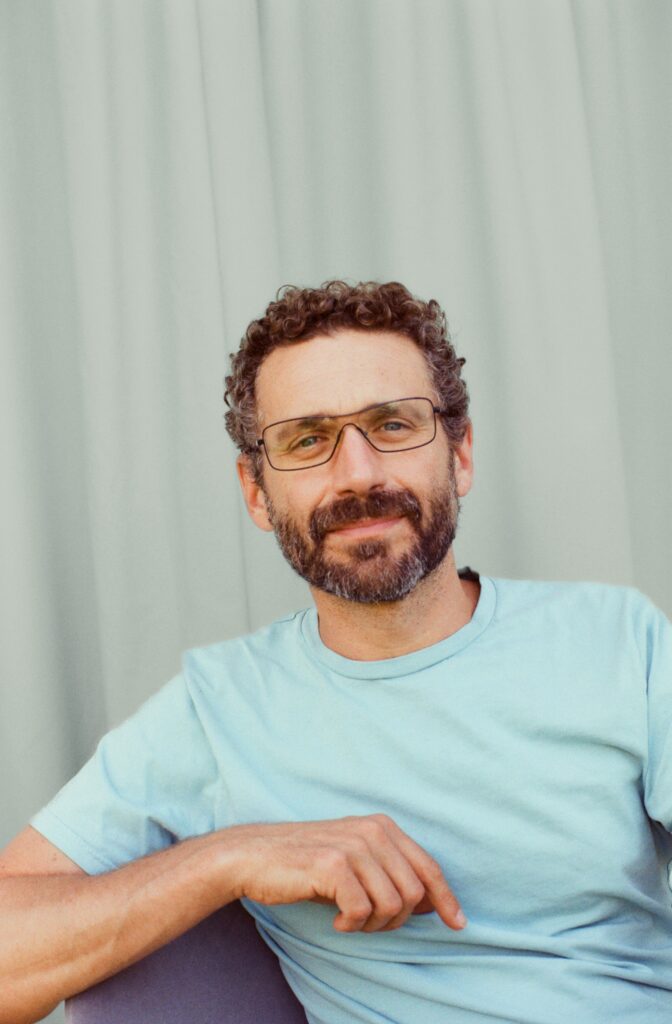
Why ARIA – the UK’s DARPA – brought “moonshot” science to THE HEAT
BY JOE ROWAN, July 24 2024
If science is to solve climate change, we’ll need a new generation of transformational technologies built on bold, focused, high-risk research programmes. ARIA is the new UK Government agency tasked with backing the scientists “reaching for the edge of the possible” — so we had to involve ARIA in THE HEAT, given the festival’s mission to connect ambitious climate scientists, founders, investors and policymakers so that magic happens.
ARIA — the Advanced Research and Invention Agency — was launched early last year with an initial £800m budget to empower scientists to pursue “moonshots” in under-explored areas of research. Its premise is simple: many of society’s most important advances came from those with the foresight to pursue new capabilities that were generally seen as unattainable. So the agency will back high-risk/high-reward projects while giving teams a remarkable degree of autonomy. “Many will fail to meet their target,” its website states, “but their efforts will inspire the next generation. Those that do succeed will generate massive social and economic returns.”
The agency is modelled on the principles of the US Advanced Research Projects Agency (ARPA), now renamed DARPA (Defense Advanced Research Projects Agency), which has funded what became the internet, the global positioning satellite system (GPS) and voice-recognition technologies. At THE HEAT, senior leaders at ARIA’s climate team discussed their approach to science translation and entrepreneurship, with an interactive workshop and discussion.
In short, they were keen to raise festival participants’ game.
“We identify areas of opportunity, and then within those, we try to shape very targeted funding programmes to get to a certain objective, to prove that something might be possible,” according to ARIA’s CEO, Ilan Gur. “In many cases, the reason these things haven’t been explored enough is that you need perspectives from cutting-edge academic scientists matched with real engineers and innovators that might be in industry or startups.”


The agency currently has four active funding programmes, including precision neurotechnologies, robot dexterity, scaling compute, and safeguarded AI. Though its climate-related programmes are not yet active, it has three in the works: forecasting tipping points, led by Gemma Bale and Sarah Bohndiek, exploring options for actively cooling the Earth, led by Mark Symes, and synthetic plants for a sustainable future, led by Angie Burnett. It plans on launching these in the next quarter, supporting anywhere between 30 and 50 groups.
For Gur, ARIA has a clear purpose. “Everyone needs to hear the message that we could be doing more. And at least in the UK, there are certainly the resources in terms of science and technology talent and capabilities to develop things that can change the world.” To do this, the agency seeks to define areas where progress simply isn’t happening. “When you look at ARIA’s mandate, it’s not to take something where the train has left the station and to get the train to move faster — it’s to find something where, actually, we need to catalyse a conversation that’s not happening.”
Gur’s interest in helping scientists to push the limits and get their ideas heard also comes from personal experience. “I was a scientist in academia who realised that my motivations were to make an impact in the world in more tangible ways than writing scientific papers,” he says. “That led me on what’s been a 15- to 20-year journey of trying to figure out how to get scientific ideas out of the lab and into the world, mainly in climate tech.” This has included founding Activate.org, empowering scientists to launch their own startups; co-founding Seeo Inc., working to commercialise a novel ultra-high-energy-density battery platform; and working as programme director at ARPA-E, which invests in early-stage innovation in the US.
ARIA is not a large agency — there are currently eight programme directors, each of whom has their own small team. And yet, it is due to provide over £100 million in funding across its programmes in the next couple of quarters. Though UK-based and funded by the UK government, this funding is not limited to startups in the UK. “We want ARIA to be the place where scientists, engineers and technologists who have a vision to drive change at scale, come to unlock that ambition and that potential,” Gur says. “We have set up our funding so that anyone can engage if they have a great idea, regardless of where they are.”
Learn more about ARIA at ARIA.org.uk. You can also learn more about ARIA’s funding programmes at https://www.aria.org.uk/our-programmes/.

